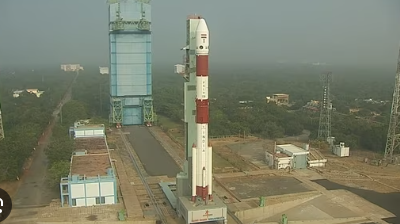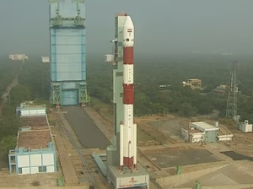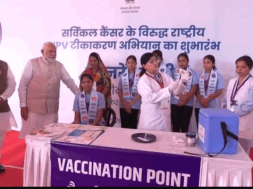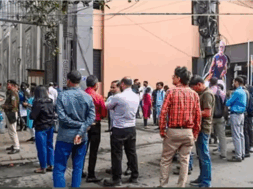
NEW DELHI, Jan 1: The Indian Space Research Organisation (ISRO) on Monday launched the PSLV-C58 X-ray Polarimeter Satellite (XPoSat) to carry out research in space-based polarisation measurements of X-ray emission from celestial sources kicking of the New Year.
The PSLV, in its 60th mission, lifted off at 9.10 a.m. from the Satish Dhawan Space Centre in Sriharikota, and 22 minutes later launched the XPoSat into an eastward low inclination orbit.
“On January 1, 2024 yet another successful mission of the PSLV has been accomplished. The PSLV-C58 has placed the primary satellite at the XPoSat in the desired orbit of 650 km with six-degree inclination,” ISRO Chairman S. Somanath said after the successful launch.
XPoSat is the first dedicated scientific satellite from the ISRO to carry out the mission of studying celestial objects. It carried two payloads, namely POLIX (Polarimeter Instrument in X-rays) and XSPECT (X-ray Spectroscopy and Timing). POLIX has been developed by Raman Research Institute (RRI), Bengaluru, and XSPECT by Space Astronomy Group of URSC, Bengaluru.
The successful launch of the XPoSAT put India in an elite category, as it has become the second nation to send an observatory to study astronomical sources, such as black holes, neutron stars, among others. During the mission, the PSLV Orbital Experimental Module-3 (POEM-3) experiment was executed to meet the objective of 10 other payloads.
The ISRO said after injection of XPoSat in 650km, 6 deg orbit, PS4 stage will be lowered to 350km, ~9.6 deg orbit, by restarting PS4 twice. PS4 stage is configured as a 3-axis stabilised orbital platform for conducting experiments with space-qualify systems with novel ideas.
The PSLV also launched 10 payloads developed by start-ups, educational institutions and ISRO centres.
They are the Radiation Shielding Experimental Module (RSEM) by TakeMe2Space, Women Engineered Satellite (WESAT) by LBS Institute of Technology for Women, BeliefSa-t0 Amateur radio satellite by K.J. Somaiya Institute of Technology, Green Impulse TrAnsmitter (GITA) by Inspecity Space Labs Private Limited, Launching Expeditions for Aspiring Payloads – Technology Demonstrator (LEAP-TD) by Dhruva Space Private Limited, RUDRA 0.3 HPGP by Bellatrix Aerospace Private Limited, ARKA-200 by Bellatrix Aerospace Private Limited, Dust Experiment (DEX) by PRL, ISRO Fuel cell Power System (FCPS) by VSSC, ISRO and Si-based High Energy cell by VSSC, ISRO.
(Manas Dasgupta)














